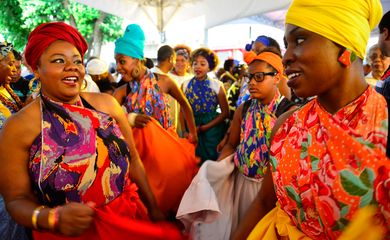Candomblé priestess fights religious intolerance in Rio


Rio de Janeiro - With roots in the Candomblé of Bahia, Mãe Meninazinha fights against religious intolerance and fosters the dissemination of Afro-Brazilian culture through the terreiros 

Aged 77, Maria do Nascimento—or "Mãe" (Mother in Portuguese) Meninazinha de Oxum, as she is known—is among the main Candomblé figures in Rio de Janeiro. Vice-president of the National Network for Afro-Brazilian Religions, she has roots in the Candomblé of Bahia and fights against religious intolerance and for the role of the terreiro (a temple or yard where Candomblé rituals are conducted) in spreading Afro-Brazilian culture.
In charge of the Ilê Omolu Oxum, a terreiro over 50 years old, in São João de Meriti, a city just outside Rio de Janeiro, Mãe Meninazinha was recently welcomed alongside 30 other religious women by President Dilma Rousseff after the National March of the Black Women, held in Brasília. On the occasion, protesters called for effective steps against racism and violence.
In Meninazinha's view, a terreiro is a space that should serve both as a shelter and a center for spreading Afro-Brazilian culture. “People come here in search of a cure, and also physical or spiritual health,” she remarked. Helping her in her tasks is Mãe Nilce de Iansã, her niece and heir. The terreiro is not limited to performing rituals, and the priestesses also hold workshops on sewing traditional African garments and arts and crafts.

Mãe Nilse de Iansã
During the workshops, participants talk about self-esteem, the role of black culture, racism, domestic violence, among other topics. Among the most sought-after courses is that on Afro-Brazilian cuisine. In fact, Mãe Nilce has recently published a book with 20 recipes, which also gives readers information on women's rights, dedicated police stations, hospitals, and human rights.
Translated by Fabrício Ferreira
Fonte: Candomblé priestess fights religious intolerance in Rio



